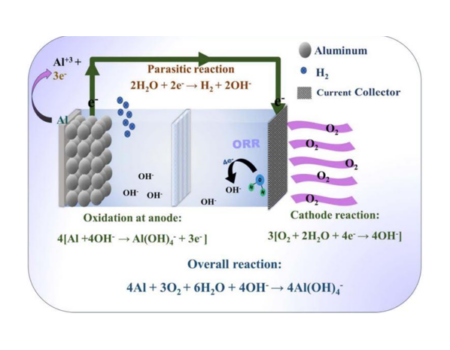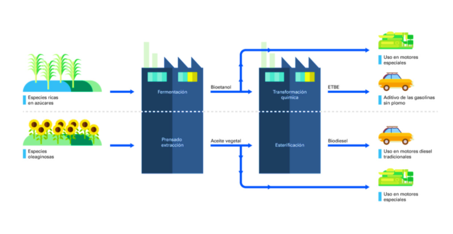MSc (c). Franco Javier Huaccha Cáceres
In the world of oncology, the search for innovative therapies to combat cancer never stops. In this context, oncolytic viruses have emerged as a promising solution, combining molecular biology and medicine to selectively destroy cancer cells without damaging healthy tissue.
What are oncolytic viruses?
Oncolytic viruses (OV) are a type of virus that selectively infects and removes cancer cells without affecting normal cells. This therapeutic approach is a subset of cancer immunotherapy, which exploits the virus’s ability to replicate within tumor cells, leading to their destruction through oncolisis.
In addition, OV can stimulate the host’s immune system to generate an antitumor response, effectively converting immunologically “cold” tumors into “hot” tumors that are more susceptible to immune attack, even to remove metastatic cells.
How do oncolytic viruses work?
The mechanism of action of oncolytic viruses is complex, but it can be summarized in several steps:
Selective infection: The virus recognizes and adheres specifically to tumor cells, thanks to its specificity that directs it towards certain proteins or receptors, “antigens”, expressed mainly in cancer.
Viral replication: Once inside the cancer cell, the virus begins to replicate itself, using resources from the host cell
Tumor lysis: When the virus has generated enough copies of itself, it causes the cancer cell to be destroyed, releasing new viral particles to infect more malignant cells.
Immune stimulation: The cell fragments released after lysis serve as “warning signals” for the immune system, activating lymphocytes and other components that attack the tumor and its microenvironment.
Examples of oncolytic viruses
There are several viruses in clinical use or under study that act as oncolytic therapies. Some of the most prominent are:
Talimogene Laherparepvec (T-VEC): Herpes simplex virus derivative, approved for the treatment of advanced melanoma. The first FDA-approved oncolytic virus.
Reovirus: A virus that is naturally found in the environment and has been shown to be effective in tumors with specific mutations.
Oncolytic adenoviruses: Genetically modified to attack solid tumors such as pancreatic or liver cancer.
Advantages and challenges
- Advantages
- Selectivity: They mostly infect cancer cells, minimizing collateral damage.
- Immunostimulating effect: Helps the immune system recognize and fight cancer.
- Compatibility with other therapies: May be combined with chemotherapy, radiation and immunotherapy.
- Challenges
- Immune response to the virus: The immune system may attack the virus before it has fulfilled its therapeutic function.
- Limited efficacy in highly advanced tumors: In some cases, the tumor environment may resist the action of the virus.
- Adverse reactions: Although usually manageable, they may include fever, fatigue, or inflammation at the application site.
Future prospects
Research on oncolytic viruses is booming, with multiple clinical trials underway to treat a wide range of cancers, from solid tumors to hematological malignancies. In addition, more advanced versions are being developed that combine gene and immunological therapies, increasing their specificity and potency.
Conclusion
Despite its promise, the clinical application of oncolytic viruses faces challenges such as variability in patient responses and possible pre-existing immunity to viruses, which may limit their effectiveness. Strategies to overcome these challenges include combining OV with other cancer therapies, such as immune checkpoint inhibitors or chemotherapy, to improve its therapeutic potential.
Bibliographical References:
- España probará un nuevo tratamiento que combina virus e inmunoterapia en tumores cerebrales. ABCSalud. 2018. https://www.abc.es/salud/enfermedades/abci-espana-probara-nuevo-tratamiento-combina-virus-inmunoterapia-tumores-cerebrales-201810241733_noticia.html#vca=compartirrrss&vso=abc&vmc=rrss&vli=fixed-link
- Oncolytic Viral Therapy: A Review and Promising Future Directions. Reddy R, Yan SC, Hasanpour Segherlou Z, et al. Journal of Neurosurgery. 2024;140(2):319-327. doi:10.3171/2023.6.JNS23243.
- Application of Oncolytic Poxviruses: An Emerging Paradigm in Cancer Therapy. Chakraborty P, Kumar R, Karn S, Raviya DD, Mondal P. Advances in Experimental Medicine and Biology. 2024;1451:369-381. doi:10.1007/978-3-031-57165-7_24.
- Development and Application of Oncolytic Viruses as the Nemesis of Tumor Cells. Zhu X, Fan C, Xiong Z, et al. Frontiers in Microbiology. 2023;14:1188526. doi:10.3389/fmicb.2023.1188526.
- Oncolytic Virotherapy: A New Paradigm in Cancer Immunotherapy. Volovat SR, Scripcariu DV, Vasilache IA, et al. International Journal of Molecular Sciences. 2024;25(2):1180. doi:10.3390/ijms25021180.
- Breaking Barriers: Animal Viruses as Oncolytic and Immunotherapeutic Agents for Human Cancers. Gazal S, Gazal S, Kaur P, Bhan A, Olagnier D. Virology. 2024;600:110238. doi:10.1016/j.virol.2024.110238.
- Oncolytic ImmunoViroTherapy: A Long History of Crosstalk Between Viruses and Immune System for Cancer Treatment. Feola S, Russo S, Ylösmäki E, Cerullo V. Pharmacology & Therapeutics. 2022;236:108103. doi:10.1016/j.pharmthera.2021.108103.
- Oncolytic Viruses as Emerging Therapy Against Cancers Including Oncovirus-Induced Cancers. Seyed-Khorrami SM, Soleimanjahi H, Łos MJ, Zandi K, Emameh RZ. European Journal of Pharmacology. 2023;939:175393. doi:10.1016/j.ejphar.2022.175393.




